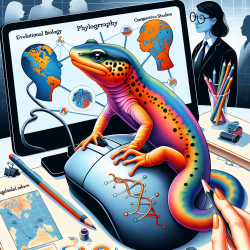Introduction
Epistemic racism, a form of systemic racism, challenges the credibility and authority of Black health professionals, particularly Black women, within the healthcare system. A recent qualitative study titled Epistemic racism in the health professions: A qualitative study with Black women in Canada explores these challenges. This blog aims to help practitioners improve their skills by understanding and addressing the outcomes of this research.
Understanding Epistemic Racism
Epistemic racism refers to the devaluation of knowledge and credibility based on racial identity. In the healthcare sector, this manifests as Black professionals being perceived as less credible, requiring additional labor to prove their competence, and having their knowledge and cultural insights dismissed in favor of stereotypical assumptions.
Key Findings from the Study
- Credibility Challenges: Black women health professionals often face skepticism regarding their qualifications and expertise, despite holding professional credentials.
- Invisible Labor: To counteract perceived credibility deficits, Black women engage in additional efforts, such as altering their appearance and communication styles, to align with dominant cultural norms.
- Devaluation of Knowledge: The cultural and community knowledge that Black women bring to their roles is frequently ignored or undervalued, while stereotypical assumptions are imposed.
Improving Practitioner Skills
To address these issues, healthcare practitioners can take several steps:
- Educate Yourself: Engage in professional development opportunities that focus on understanding epistemic racism and its impact on colleagues and patients.
- Foster Inclusivity: Create an environment that values diverse perspectives and encourages open dialogue about race and racism.
- Advocate for Change: Support policies and practices that promote diversity in leadership positions and challenge the status quo.
- Mentorship and Support: Provide mentorship and support to Black colleagues, helping them navigate systemic barriers and advance in their careers.
Encouraging Further Research
While this study provides valuable insights, further research is needed to explore the nuances of epistemic racism across different healthcare professions and settings. Practitioners are encouraged to participate in or support research efforts that aim to deepen our understanding of these issues.
Conclusion
Addressing epistemic racism requires a collective effort to recognize and value the contributions of Black health professionals. By fostering an inclusive environment and advocating for systemic change, we can work towards a healthcare system that respects and values all voices. To read the original research paper, please follow this link: Epistemic racism in the health professions: A qualitative study with Black women in Canada.










